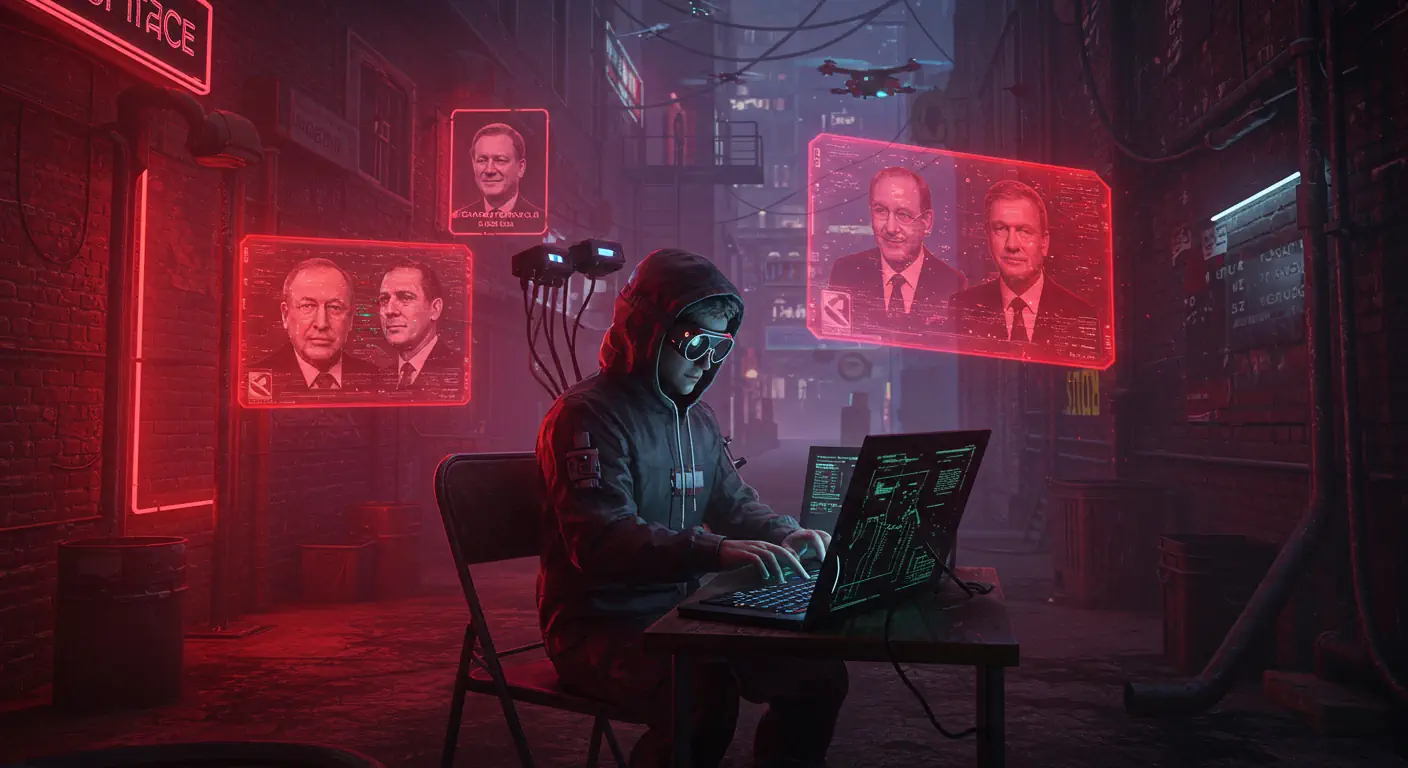Cyberpunk has never been just an aesthetic. Sure, it gave us mirrorshades, chrome limbs, neon alleys, and black market brain implants. But under the surface glitz is something far more grounded: a raw political critique of the world we live in — or the world we’re steadily becoming.
The genre rose in the 1980s, alongside Reaganomics, Thatcherism, and Japan’s techno-economic boom. That era marked the dawn of neoliberalism, a now-global economic doctrine where markets are god, deregulation is gospel, and governments outsource public life to corporations. It was also a time when personal computing began to scale, networks started to link, and the dream of total information control went from theory to prototype.
Cyberpunk was born as a reaction. It imagined worlds where governments have hollowed out, and all that remains is a patchwork of corporate states, biometric checkpoints, private police, and underground networks of punks, hackers, and fixers trying to stay alive — and sometimes, to strike back.
The cities of cyberpunk are overbuilt and underregulated. Towers of steel and glass loom over streets slick with rain and ruin. Megacorps control energy, healthcare, data, and identity. Laws are written in boardrooms and enforced by drones. The poor live stacked in shipping containers while the rich customize their DNA. In this world, technology is not neutral — it’s power, and who controls it defines the future.
But what makes cyberpunk uniquely political isn’t just its vision of inequality. It’s how it defamiliarizes neoliberalism — that is, it shows us just how strange and constructed our market-driven reality is. It breaks the spell that tells us the current system is "natural." It asks: what if capitalism never self-corrects? What if freedom of choice means nothing when every option leads to surveillance or exploitation?
That critique cuts deeper than dystopia. It’s not just “what if things get worse?” It’s: what if things already are this bad, just behind better UX and cleaner UI?
Resistance in the Margins
Early cyberpunk fiction was often cynical. The heroes weren’t saints; they were mercs, junkies, outcasts — people too small to change the system, but too smart to play along quietly. You could call that shallow, but in a world where true political agency is limited, personal rebellion is a form of politics. Even choosing to live off the grid, patch your own software, or spoof your identity becomes a kind of tactical resistance.
Later stories, and especially games like Cyberpunk 2077, take this further. They lean into the political subtext and bring it forward. Power hierarchies, identity commodification, corporate capture of public infrastructure — these aren’t just background themes; they’re the terrain of the game. One of the designers outright said: “Cyberpunk is inherently political.” No argument there.
And let’s not kid ourselves — the real world is already cyberpunk. We have state-level spyware sold on the open market. We’ve got billion-dollar companies mining your clicks, habits, and biometrics. Your fridge is online. Your car reports you. Your job is automated. The cops are armed with facial recognition. And when your favorite site bans you? That’s a form of exile.
We live in a time where control systems are invisible and total. But the glitchy, grimy optimism of cyberpunk remains: there's always a backdoor, always a workaround, always someone selling a zero-day in a dark alley Discord.
Politics, Code, and the Punk in Cyberpunk
If you're a developer, a sysadmin, a designer — you're already a character in this story. Your decisions shape the stack, and the stack shapes the world. The libraries you use, the licenses you allow, the data you log or don’t — these are political acts. Choosing FOSS over proprietary, building identity systems with boundaries instead of vacuuming up metadata — this is resistance.
And yet, as we saw in the recent Xlibre fork of X11, even the FOSS world isn’t free from politics. One side pushes DEI and inclusion. The other rejects it as ideological capture. Some developers want codebases to be neutral zones; others insist that no such neutrality exists when the tools we build govern billions of lives.
The truth? Both sides are right, and both are delusional. Tech has always been political. Every protocol is a value system. Every UI is a moral choice. Pretending otherwise is not apolitical — it’s just taking the default settings of power.
What's Left to Hack?
Cyberpunk never promised utopia. It promised awareness. A wake-up call in the form of a story. A vision of the future where we’d have to decide: blend in, sell out, or jack in and fight back. Not every hacker has to be a hero, but every coder should understand the stakes.
As we move deeper into AI-driven economies, biometric governance, and automated moral decisions, the need for political awareness in tech only grows. Not partisan, not performative — but systemic. Rigorous. Humble. Clear-eyed.
If cyberpunk once helped us imagine what could go wrong, today it helps us understand what already has — and how to build systems that don’t just survive, but resist.
The code isn’t just code. The future isn’t written yet. But the shell is open.




